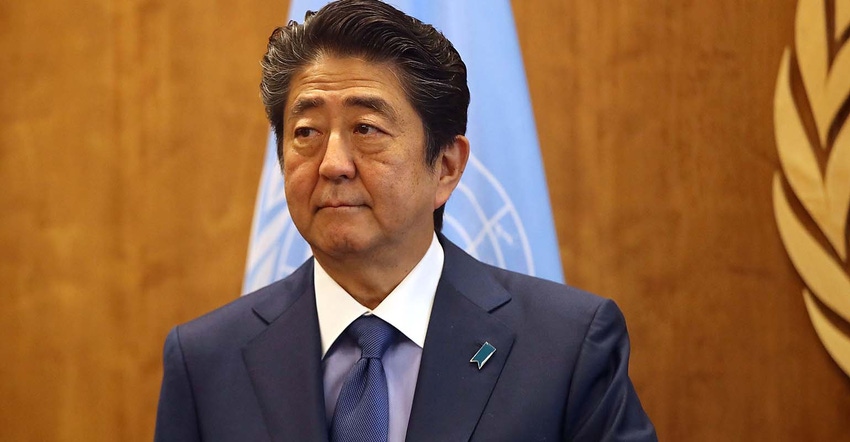
by Jenny Leonard and Jennifer Jacobs
President Donald Trump announced Wednesday he had reached an agreement with Japanese Prime Minister Shinzo Abe to open trade talks between the two nations.
Trump said he expected the talks will come to a “satisfactory conclusion” as he spoke to reporters at the beginning of a meeting with Abe in New York. “It can only be better for the United States, because it couldn’t get any worse than what has happened over the years,” Trump added.
The negotiations are likely to focus on the trade in automobiles, according to one person familiar with the matter, who spoke on condition of anonymity about private deliberations. Both leaders are in New York this week for meetings at the United Nations.
Abe resisted for almost two years the push to start bilateral trade talks with the U.S., but Trump’s threatened auto tariffs forced the Asian nation to reconsider.
Japan’s goal is to delay the potential U.S. auto tariffs, according to two people familiar with the matter. They likened the Japanese talks to an arrangement the European Union made with the U.S. in July, in which the Trump administration agreed to hold off on any new duties while the two sides are in negotiations.
Toshimitsu Motegi, Japan’s economic revitalization minister, and U.S. Trade Representative Robert Lighthizer on Tuesday agreed on the outlines of the talks, three people familiar with the matter said.
TPP Withdrawal
Abe spent much of his political capital on negotiating and finalizing the 12-nation Trans-Pacific Partnership that Trump campaigned against and withdrew the U.S. from in the first days of his administration.
The Japanese leader during the 2016 presidential campaign even met with Trump and tried to convince him to stay in TPP. The 11 remaining nations are planning to implement the agreement in 2019.
In Washington on Wednesday, the Senate Finance Committee held a hearing with general agreement among senators from both parties and industry witnesses that auto tariffs –- on top of metal import duties already hitting the industry --- would only raise costs that hurt suppliers, manufacturers, dealers and consumers.
The Commerce Department has until February to determine whether auto imports represent a U.S. security risk, which could lead Trump to impose tariffs and quotas.
“The auto industry is not seeking protection and certainly not asking for additional tariffs, which will harm manufacturing in the U.S., harm our workers and most importantly, harm U.S. consumers,’’ said Rick Schostek, executive vice president of Honda North America. “These tariffs will ripple across all aspects of the auto industry and the broader economy.’’
Senators questioned imposing auto tariffs on the grounds of protecting national security, especially with the U.S. economy already being affected by duties on Chinese imports and other administration trade actions.
“Our trade policy should strengthen our relationships with our allies while targeting China’s most harmful trade practices,’’ said Republican Senator Orrin Hatch of Utah, the committee chairman. “Tariffs on autos and auto parts are not going to help us achieve any of these things.’’
Senator Ron Wyden of Oregon, the panel’s top Democrat, called it “trade policy dictated by early-morning tweets and bluster, and it may end up costing jobs and doing more harm than good.’’
--With assistance from Shawn Donnan, Jennifer Epstein, Toluse Olorunnipa and Mark Niquette.
To contact the reporters on this story: Jenny Leonard in Washington at [email protected] ;Jennifer Jacobs in Washington at [email protected]
To contact the editors responsible for this story: Brendan Murray at [email protected] Mike Dorning, Joshua Gallu
© 2018 Bloomberg L.P
About the Author(s)
You May Also Like




